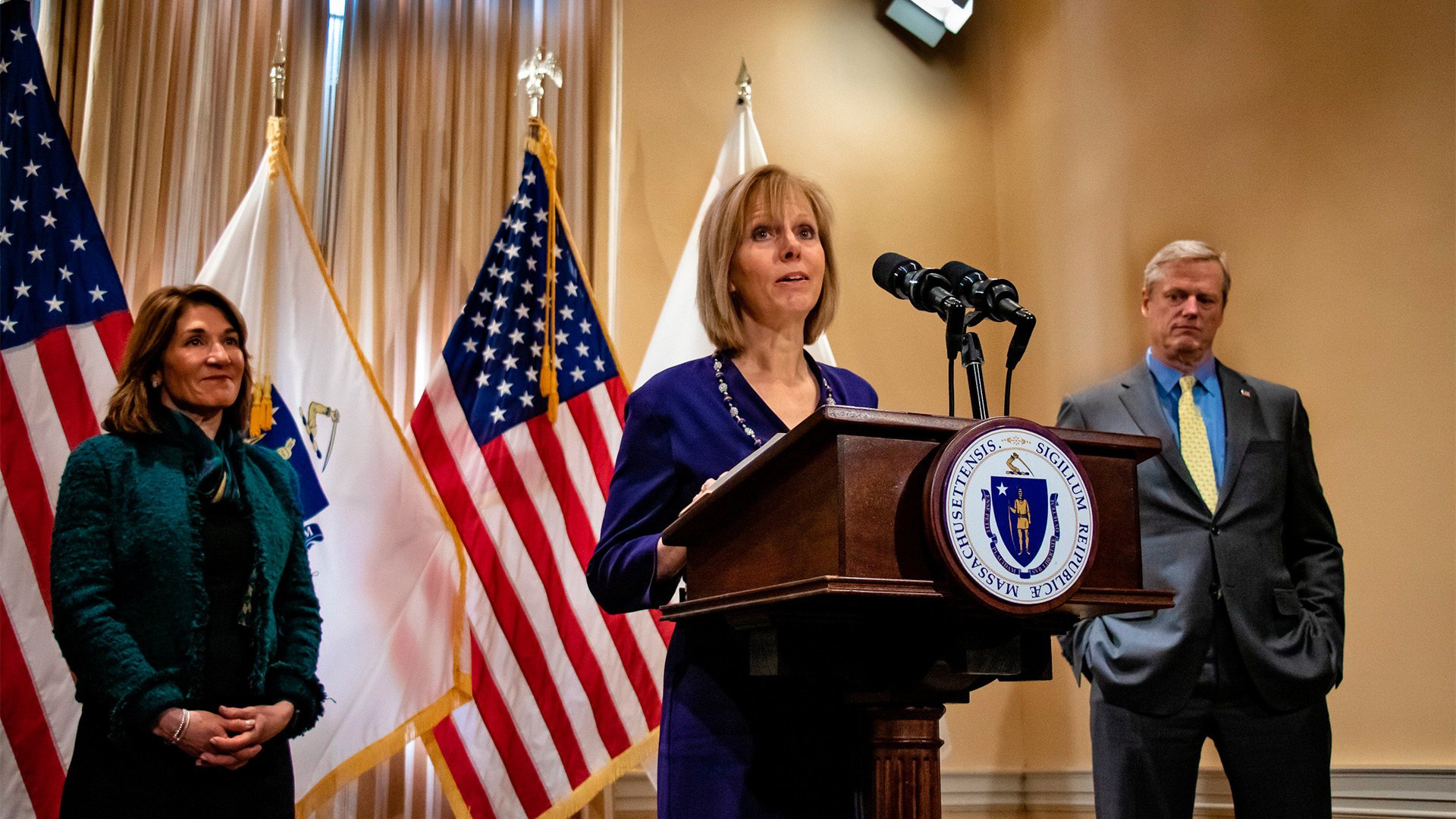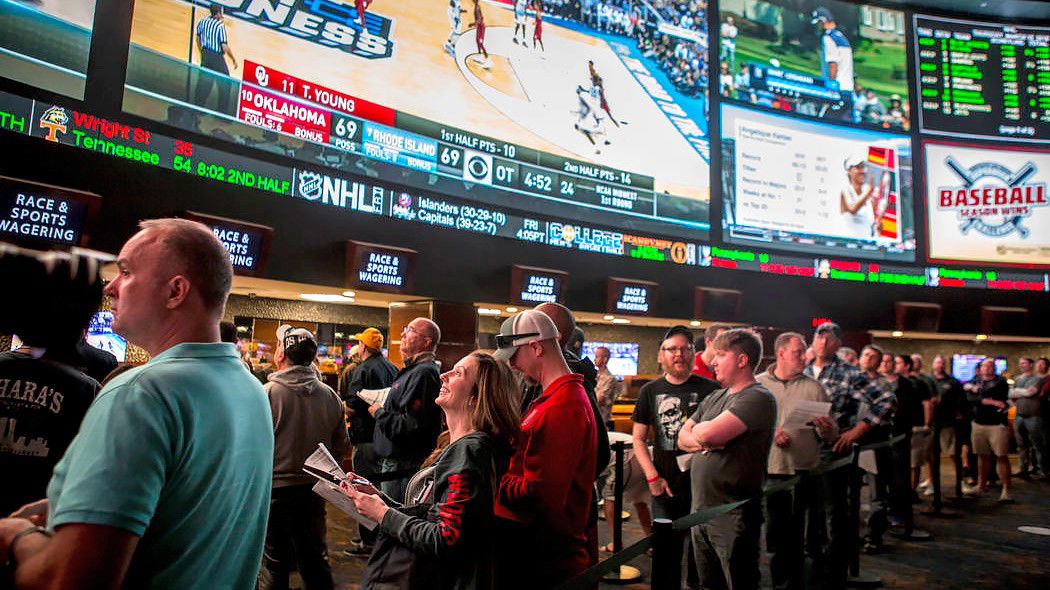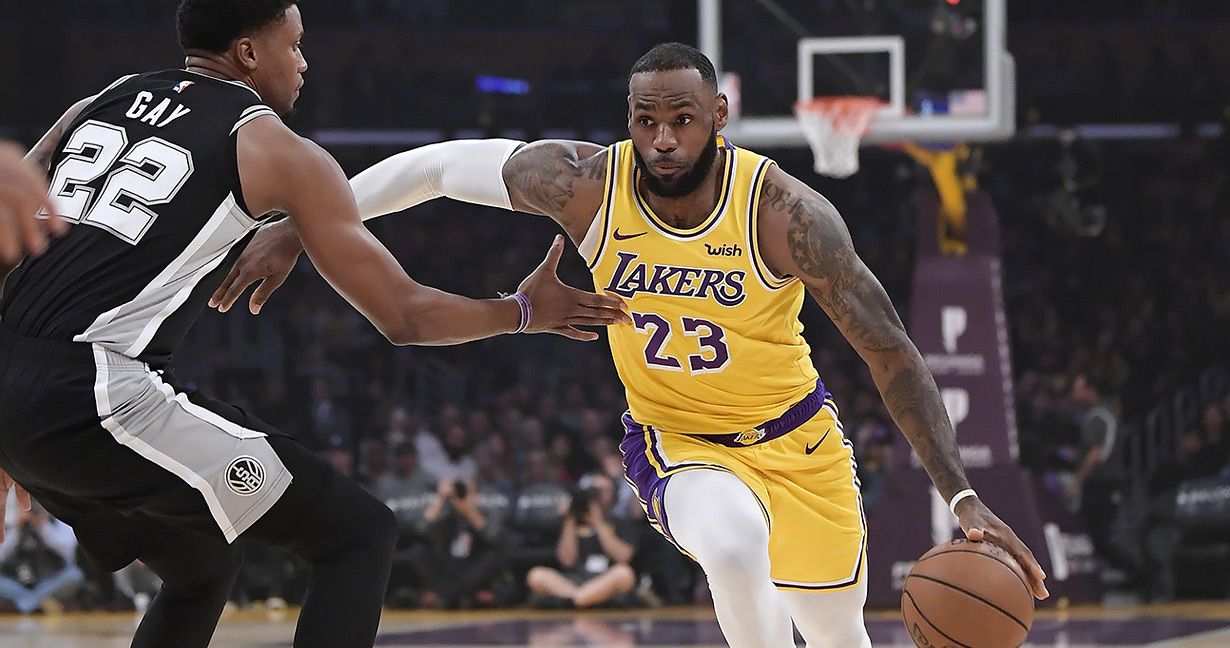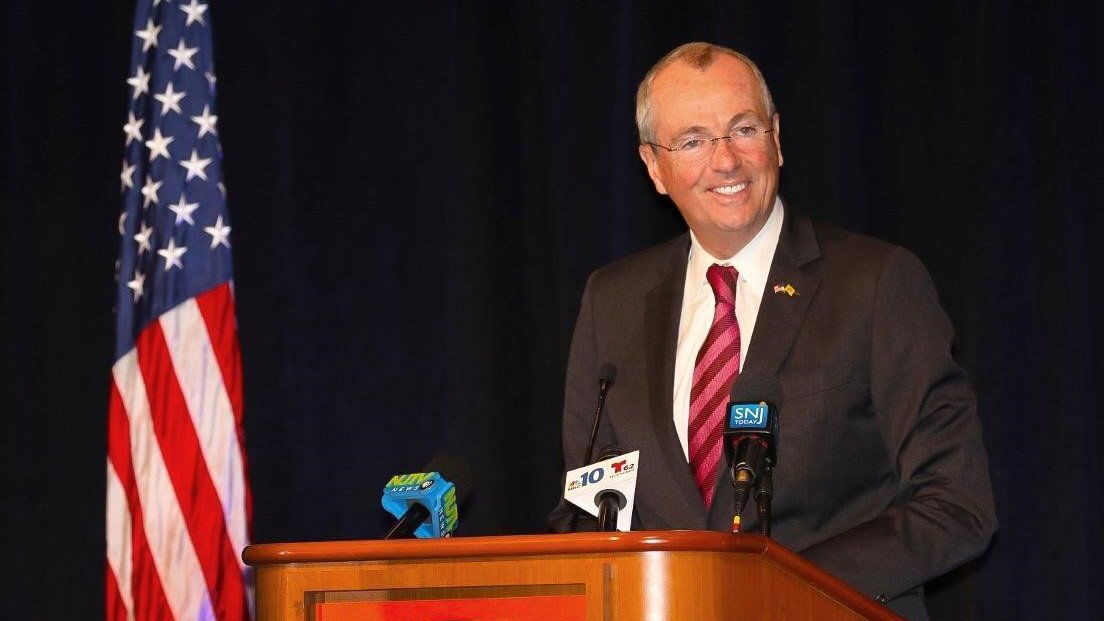Massachusetts Gov. signs sports betting into law; Gaming Commission now takes the reins on implementation
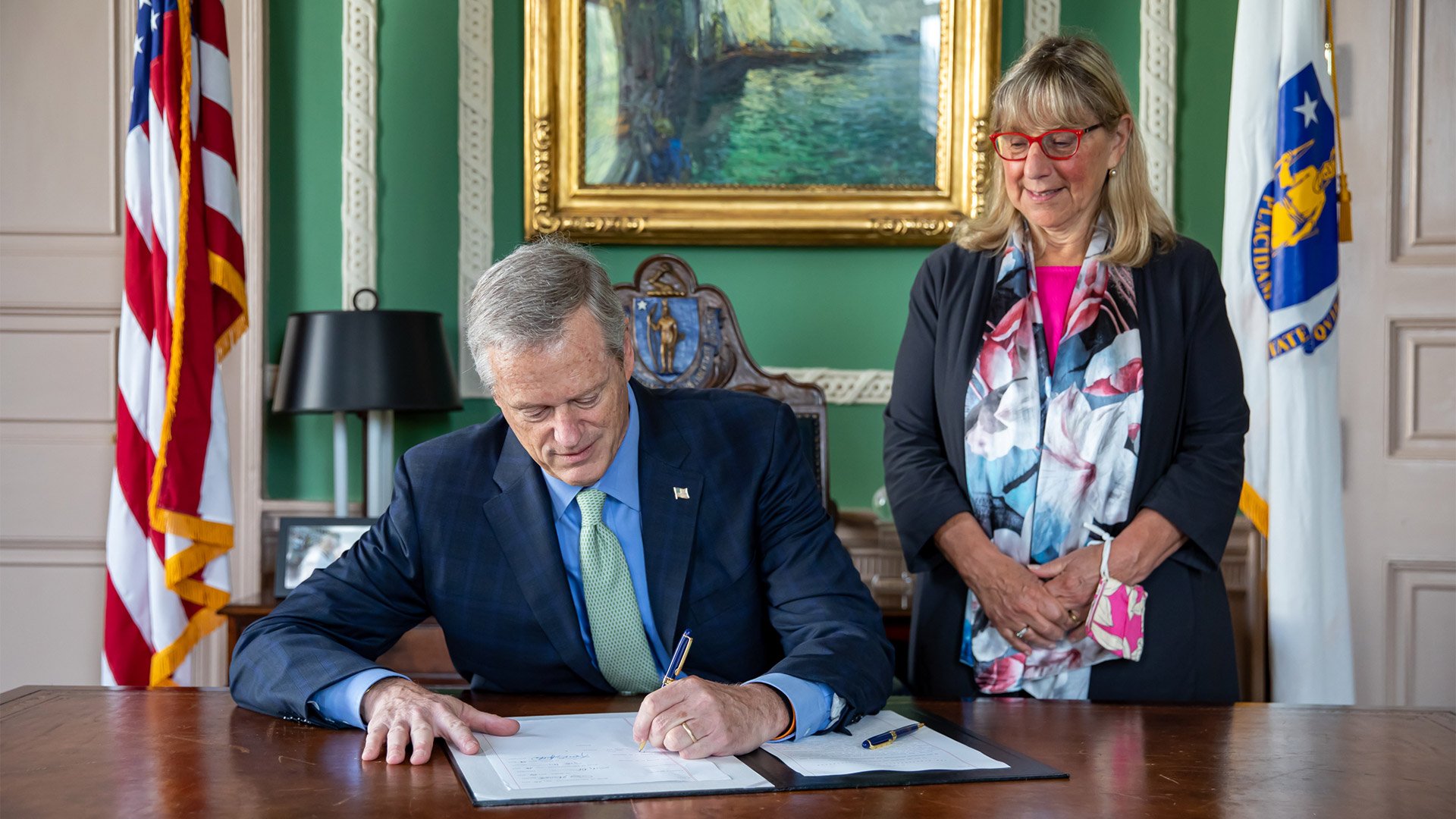
Massachusetts Gov. Charlie Baker has now signed sports betting into law. The news was confirmed by his office on Wednesday, and comes after lawmakers in the Bay State reached an agreement earlier this month to legalize betting on both professional and college sports. Baker said he looks forward to the law being implemented "over the next several months,” with the ball now in the Massachusetts Gaming Commission’s court.
"Our administration first filed legislation to legalize sports wagering in the Commonwealth several years ago, and I am glad to be able to sign this bill into law today," Baker said in a statement. "We appreciate the dedication and compromise that the Legislature demonstrated on this issue, and we look forward to supporting the work of the Massachusetts Gaming Commission on the responsible implementation of the law over the next several months."
Baker’s signature finalizes a years-long push to legalize sports betting in the state, bringing it into line with most of its neighbors, including New York, New Hampshire, Connecticut, and Rhode Island. The governor’s move also came one day before a Thursday deadline to take action on legislation Beacon Hill sent him last week, at the end of formal lawmaking for the year.
After a four-year process, sports betting is now legal in Massachusetts!! 🏈⚾️🏀🏒⚽️
— Eric Lesser (@EricLesser) August 10, 2022
The legalization was celebrated by a number of stakeholders, including Sen. Eric Lesser, who helped negotiate the final bill. “This new law will give residents new ways to engage with sports, generate new jobs and investment, and includes some of the strongest consumer and player safeguards in the country,” he said in a statement. “I’m confident this law will be a model for other states, and I look forward to seeing its full implementation in the months ahead.”
Revenue collected through the law will be distributed to municipalities, and for economic, workforce, education, and public health priorities. It is expected to generate an estimated $60 million in annual tax revenue for the state, in addition to collecting up to $70 to $80 million in initial licensing fees, which must be renewed every five years.
Massachusetts’ long road to legalization
Bay State lawmakers reached a last-minute agreement on August 1, as the final hours of formal sessions trudged well beyond Sunday’s official midnight deadline. Massachusetts now joins a growing list of more than 30 states that have already legalized their respective sports betting markets, through legislation that allows anyone at least 21 years old to place a wager with a 15% tax set on in-person bets, and 20% tax on mobile bets.
In reaching the deal, lawmakers navigated a number of discrepancies, most notably the legalization of college sports wagering: while the House proposal allowed this, the Senate one didn’t. Ultimately, lawmakers agreed to legalize college betting except on state colleges and universities, unless they are playing in a post-season tournament like March Madness.
As for other provisions, negotiators upheld a proposal to not allow gambling on credit cards, a move that aims to curb problem gambling. However, a second preventive measure — a whistle-to-whistle ban on sports betting advertising during live broadcasts — did not survive negotiations. While lawmakers had a back-and-forth on that proposal, many worried about the unconstitutionality of the issue.

Casinos and racetracks will receive sports betting licenses, and there will also be seven online sports betting licenses. Casino interests in the state had long pushed for legalization, including a last effort before passage, through a letter sent to lawmakers in which they argued the prohibition was affecting their businesses, putting them at disadvantage.
Mobile applications and digital platforms must also “prominently display” information for a problem gambling hotline, which will be overseen by the state Department of Public Health. Operators will also be tasked with submitting annual problem gambling plans to the Gaming Commission, outlining how they intend to identify patrons with “suspected or known problem gaming behavior,” in order to help them connect to resources.
"It's going to create a whole new industry and a whole new sector for our economy and a whole new way for people to engage with their favorite teams," Lesser told WBZ-TV when the bill passed. "I think given the scope of what we've included here, including college that's out of Massachusetts, I think we're probably going to see 60-to-65 million dollars a year.”
The Massachusetts Gaming Commission takes the reins
The big question now is when will the market actually launch. While legislators initially said sports betting could be up and running by the NFL’s season kickoff this fall, the state Gaming Commission recently pumped the brakes on these expectations. Commissioners warned implementing the law could be a months-long process, highlighting the amount of regulatory work that needs to be done before sports fans can begin placing their wagers.
The Gaming Commission now takes the reins on implementation, and it could potentially take until 2023 before Massachusetts residents can place bets. Regulations and process licensing applications must now be solidified for the newly legal industry. Commissioner Brad Hill said regulators wanted to “take our time” in implementing the law. “From my point of view, this is going to take a little longer than people probably anticipate. And I’m ok with that,” he said.
However, lawmakers and the industry have a different timeline in mind. On Tuesday, House Speaker Ronald Mariano said it would be “disappointing” if implementation takes too long, reports MassLive. “You’ve got two hotels that are ready to open the doors as quickly as you can,” he said. “I know Encore has built a room, and I know MGM is depending on this to increase their bottom line. I hope we can get it up and running at least in time for fall football.”
As for now, the Gaming Commission is set to meet Thursday, with preparations related to sports betting on its agenda, reports Boston 25. “On behalf of my fellow commissioners and the staff of the MGC, we appreciate the confidence the Legislature and the Governor have in naming us as regulator of this new industry,” Cathy Judd-Stein, chair of the commission, said in a statement.
Cathy Judd-Stein
“For the past several years, we have been monitoring sports wagering legislation and taking appropriate steps to prepare for our potential role,” Stein’s statement further reads. “As soon as this week we will be working to understand the landscape of interest in operator licensure as we move forward with this process.”
The Gaming Commission unveiled last week that its staff has now started to outline an application process for potential licensees, with timeline estimates ranging from three to six months. But while the process could only take a few months, it is ultimately dependent on what commissioners want to include in an application.
The commission is also set to draft and issue a list of regulations, which are to serve as a how-to manual for operators. Deputy General Counsel Caitlin Monahan said attorneys at the commission have come up with 225 different potential rules, covering a vast array of issues, from how wagers are submitted to technology standards. Given the extensive list, a three-tier system has been created to prioritize regulations that should be addressed first.
The commission has also voted unanimously to create a new sports wagering division, the Boston Herald reported last week. MGC Executive Director Karen Wells said she is seeking to hire a chief to lead that division. Also in the plans is a “roundtable discussion” with the state’s key gaming stakeholders – Encore Boston Harbor, MGM Springfield, Plainridge Park Casino, Raynham Park, and Suffolk Downs – to hear their plans for the upcoming market.


